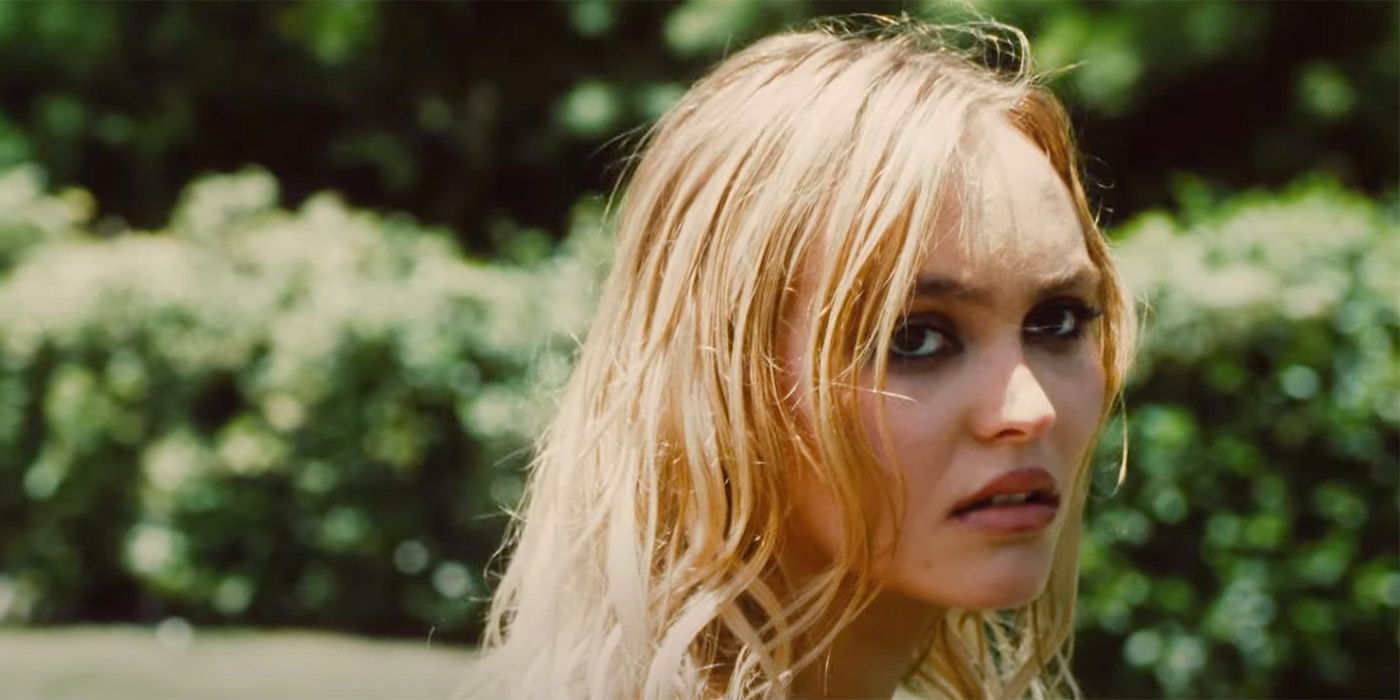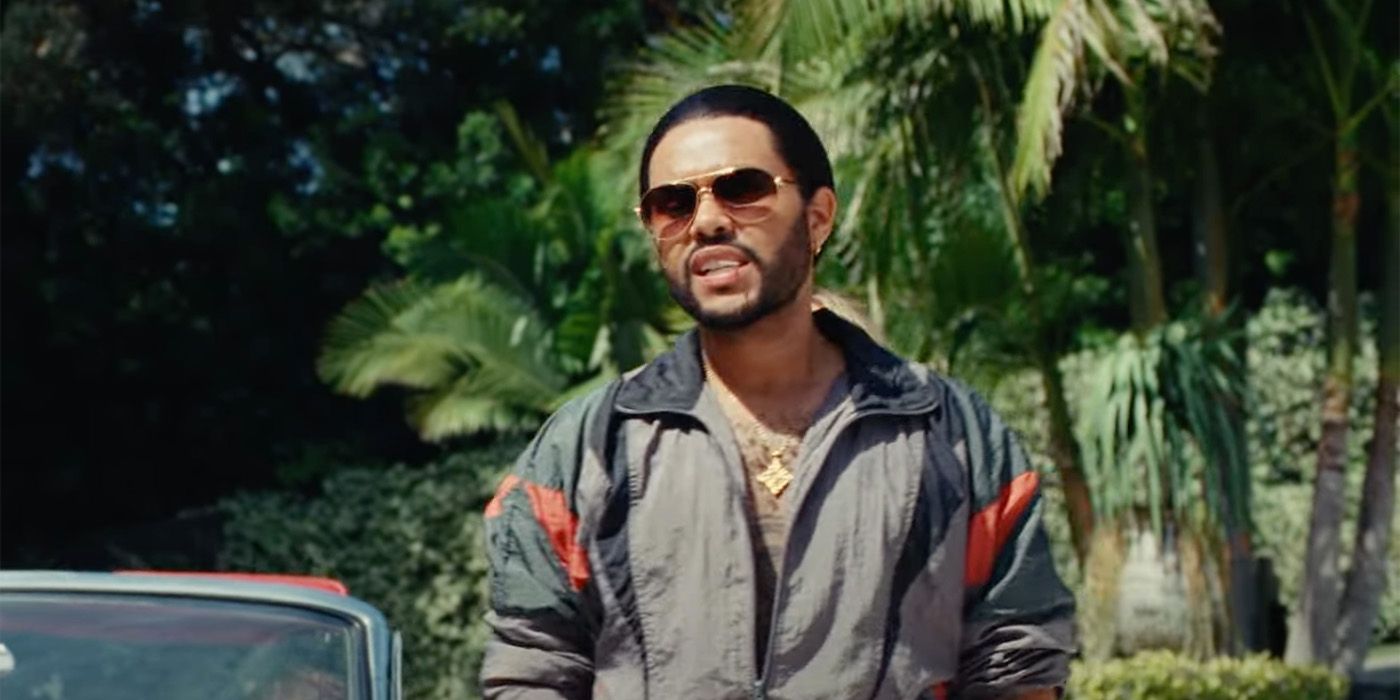There is a world where The Idol would have been a hit: A story about a star who has just lost the person closest to them, who has unraveled and is being used by everyone around her like a cash cow, who is the target of predatory men eager to take advantage of her vulnerability. There is a world where that predictable but entertaining story would actually flourish — but that version of The Idol is not written by Sam Levinson, nor is it directed by him. Levinson's version of The Idol is sex-obsessed, shallow, and oftentimes painfully predictable, at least as of the first two episodes.
Lily-Rose Depp plays the vulnerable and talented Jocelyn. A pop idol, Jocelyn has recently lost her mother (a point that, if you missed it the first time around, will be referred to approximately a hundred more times over the initial episodes). There's some implied background that her mother was controlling, protective, and perhaps sheltered Jocelyn from the realities of the industry, but there's not much more explored along those lines via the episodes that screened at Cannes Film Festival. All we know is that the loss affected Jocelyn profoundly. After her mother's death, she went on a drug spiral and had some serious mental health issues that nearly ruined her career.
'The Idol' Should Follow a Pop Star's Rise, But Loses Focus
The series starts with Jocelyn planning her comeback; she is determined to return to her former status as an idol. The people around her are either vultures or yes men, feeding off of her talent and success and eager to push her back onto the stage even if she hates the songs she's singing, hates the moves she's dancing to, and hates the music video she has to film. It's not really about her passion anymore, it's about what they can offer her and her career.
On paper, this concept is intriguing, especially if the series had followed director Amy Seimetz's vision that had focused more on Jocelyn and her career. But Levinson is fixated more on the so-called "dark fairytale" of fame, bringing in Tedros (Abel "The Weeknd" Tesfaye) as a dark and chaotic figure who is intent on feeding on Jocelyn just like the people around her. This blossoming romance between Tedros and Jocelyn almost immediately becomes sexual, and while I'm sure these sex scenes will scandalize some viewers, they often just feel lazy.
'The Idol' Tries to Shock, But Underwhelms
Sex in television and film serves a purpose, and the best sex scenes always have something beneath the surface beyond just a scene made to titillate. Where The Idol is concerned, the first sex scene between Tedros and Jocelyn — which involves a silk robe, a glass, and a switchblade — establishes a lot about the two characters involved. Other scenes, like one where Tedros orders Jocelyn around with awkward dirty talk, feel like they've been written by a 15-year-old boy. It's fantasy, but a hardly inspired one.
What Levinson perceives as provocative and subversive is rather underwhelming. How can a show with so much nudity, sex, and eroticism be so bland? There's no substance behind his style. Perhaps more will arise in later episodes as we learn more about Tedros, but simply showing a wealth of nudity or sex is not enough. Levinson's style is fully on display, and sometimes it works, but whether by design or through a fault of editing, the episodes are messy. A show about a pop star slowly falling apart should be ratcheting up the tension inherent to the plot.
An extended scene that follows Jocelyn through the process of making a music video would have been the opportune moment to show us, via the camera, just how much an environment like a film set can be a pressure cooker for someone who is already on the brink. Instead, the scene lacks the demanding tempo that might have illustrated the story's point better. Levinson seems to have no faith in his audience, reiterating themes and ideas and damn near bashing us over the head with the basic concept that fame is a poison rather than a boon.
Without the Surrounding Scandal, This Is an Age-Old Story
Back in March, Rolling Stone reported on The Idol in a searing expose, effectively putting the show on everyone's radar and creating the sort of controversy that could be publicity gold. But without the lead-in drama of a scandalous article, what is left of this series to enjoy? This is hardly the first time a television show has tackled fame and the insidious nature of the music industry. Levinson isn't creating something groundbreaking, though, and the series pales in comparison, when it comes to performances, to Euphoria.
Depp is decent as Jocelyn, though the role is not exactly the most challenging part to play. Much of her personality and the impression one earns of her is based on her costuming and the way the camera ogles her. It sexualizes her, obsessing over her curves and her beauty. If there was ever a textbook definition of the male gaze, you need only look at how The Idol sees Jocelyn. Tesfaye is surprisingly good as the oily and mysterious Tedros. While it sometimes seems like he's merely playing a twisted version of his persona as The Weeknd, Tesfaye's fingerprints are clearly left on this series. Jocelyn's thoughts and opinions about pop music and the churning machine of the industry are conversations that Tesfaye has had before. One wonders why the cult leader angle was necessary for Tedros when the musician himself has so much personal experience to mine.
The series kicks off with dialogue and scenes meant to shock audiences, as Jocelyn's entourage mocks mental health, makes feeble comparisons between the star's breakdown and Britney Spears', and literally locks up an intimacy coordinator in a bathroom when they don't want to listen to him. It's all meant to be satirical, probably, but it merely comes off as bitter social commentary. There are a lot of attempts at greatness, and sometimes the music is near greatness, but The Idol is far from Levinson's best work. In the end, what is meant to feel shocking and coated in sex appeal is merely an age-old story about fame.
Rating: D
The Idol, which had its premiere at the 2023 Cannes Film Festival, is slated for a June 4 release on HBO and Max.


.jpeg)
Comments
Post a Comment